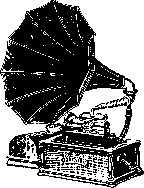|  |
Some years ago, radio station WRPI in Troy, NY, broadcast a promotional piece in which DJ Dean Winkler took a very dirty copy of Miles Davis' In A Silent Way into the men's lavatory and proceeded to clean it in the washroom sink. Technology and techniques have advanced since then and cleaning LPs (as well as 45s and 78s) has almost become a science. There are as many opinions and cleaning formulae as there are record collectors, but for the Vinyl Tourist simpler is better. For a thorough removal of dust and dirt, the VPI Record Cleaning Machine is an effective and economical choice. While luxury models like the now-discontinued HW-17 and HW-17F (with fan) offer automatic dispensing of cleaning fluid (as well as an external collection bottle for used fluid), the lower cost HW-16.5 is just as vigorous at performing the task. In fact, for less than $50 plus a few hours labor, you can add a fan and an external collector to the 16.5, and save the $800 price difference. [VPI now sells a kit to add the collection bottle to older 16.5s.] And, as long as you're taking it apart, do add some sound dampening material to eliminate the necessity of wearing ear protection when in use. It's ironic that the very device that will increase your listening pleasure will also kill your hearing.
A cleaning machine that is theoretically much more efficient, as well as quieter, is the Loricraft. There are several models, but with a base price of $1,995, they come at a hefty premium. Based on the even more expensive Keith Monks record cleaner (about $6,500!), they use a more sophisticated principle for really deep groove cleaning without recontamination.
Recently, ultrasonic cleaners, such as the Audio Desk Pro for $3,699, have appeared on the market. Then there's the UltraSonic Records V8. Price? Seriously, if you can afford one of these you can hire a servant with a fetish to lick your LPs clean.
Fortunately, at the lower end, there is also the $80 Spin-Clean Record Washer. Crude, but it works.
Unfortunately, my long time favorite Torumat TM-7XH Superfluid has been discontinued due to the death of Mr. Toy Shigekawa, the inventor and marketer. However, H. Duane Goldman's Disc Doctor Miracle Record Cleaner and Custom Brushes may be the next best thing, if not its superior. While a gallon of fluid and a set of brushes costs less than $100, his new QuickWash Record Cleaner is designed specifically for machine use. Of course, you can always mix your own record cleaning fluid. Keep in mind that these home brews are all alcohol-based and should never be used on shellac-based 78s.
After the record has been thoroughly washed and dried, store it in a fresh, anti-static sleeve, such as the Sleeve City High-Density Antistatic Record Sleeve -- the same type supplied with many "audiophile" LPs.
By the way, if the original inner sleeve contains any printed information -- even if it's only a sampler of other records on the same label -- don't throw it away! These things have a way of becoming historically valuable as time goes on. Just place it in the jacket along with the newly cleaned and resleeved LP or if things are getting too tight, just keep it in a separate archive.
Finally, store your records upright, on edge, on a sturdy shelf. See that the storage area is not exposed to sources of heat, including direct sunlight. Fill in the shelf with books, if necessary, rather than let your records lean at an angle. A snug-fitting vertical array will help prevent warping for which there is no easy cure. And remember, there are only two places in your home where you should be able to find a record: in the jacket or on the turntable. Just because you've invited some of your hipster friends over to smoke pot and listen to Mingus, there's no excuse for leaving your valuable LPs lying around in stacks on the coffee table.
As for the shelving, this is one of those perennial problems. The average 12" record plus jacket weighs 7 ounces and you can fit about 68 albums on a foot of shelving. This works out to almost 30 lbs. per linear foot. I had simple custom bookcases made with 12" deep shelves, each 2 feet long and I can see a slight sagging in each. Anything you buy should ideally have support every 18 inches -- every foot would be even better.
Major commercial storage products include:
- At the low end, we have the venerable storage crate, similar to the old style milk cases you used in college
- Moving up the design pyramid, we have Jef Fowler's TwoCan HiFi Rackit™ system of home audio storage units, which is designed to accommodate record albums and other media, as well as your wine collection. These are a revival of the Per Madsen Design units, which were discontinued when Per retired in 2009.
- Finally, the Open Directory Project provides additional links for media storage and protection.
For additional information about record cleaning products:
VPI Industries
77 Cliffwood Avenue - 3B
Cliffwood NJ 07721
USA
Tel: (908) 946-8606
Fax: (908) 946-8578The Disc Doctor
Lagniapppe Chemicals Ltd.
PO Box 37066
St. Louis MO 63141
USA
Tel: (314) 205-1388
 |
 |
 |
 |
 |
Main Page |
|---|